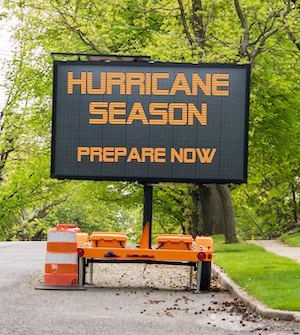TALLAHASSEE, FL – The Riparian Counties Stakeholder Coalition (RCSC) recently confirmed Calhoun County native Jim McClellan, president of Tallahassee-based Tupelo Media, as its new chairman. McClellan replaces Chadwick Taylor of Marianna who was a founding member and chair since helping to launch the organization in 2012. Representing Jackson, Gadsden, Calhoun, Liberty, Gulf, and Franklin counties, RCSC’s three-part mission is to:
- Evaluate the impacts of policies, proposals, and events that affect the Apalachicola River, specifically as they affect its six member counties;
- Communicate with elected officials and other stakeholders in those counties to develop consensus positions when necessary; and
- Advocate for the counties at the federal, regional, and state levels, using scientific data that is developed using RCSC funding or money obtained by RCSC from other sources.

“The only way to effectively protect the interests of our counties and our people along the Apalachicola River is by speaking with one voice on the critical issues – and that’s why the RCSC was established,” McClellan said. “I’m grateful for the privilege to serve alongside smart, dedicated leaders in the basin and build on the work of Chad Taylor, Dan Tonsmeire, Bill McCartney, Dave McLain, and so many others whose vision brought the RCSC to life.”
The RCSC’s membership includes two members from each county, appointed by their respective county commissions. It is part of the larger sub-basin committee of the Apalachicola-Chattahoochee-Flint (ACF) Stakeholder Coalition. Administrative assistance for the RCSC is provided by the Apalachee Regional Planning Commission (ARPC). The RCSC interacts with various Florida agencies, the Northwest Florida Water Management District (NWFWMD), the Florida Department of Environmental Protection (DEP), and facilitates discussion between basin-wide stakeholders including NGOs and other public and private organizations such as the newly formed Partnership for a Resilient Apalachicola Bay.
McClellan said the organization’s immediate challenges are to forge stronger relationships with government, business, and community leaders and to ensure that each county is fully represented on the RCSC board. Projects such as slough restoration (led by the Apalachicola Riverkeeper), scheduled repairs to the locks at Jim Woodruff dam, and a proposed fish passage linking Lake Seminole with the Apalachicola River are among the positive developments the group is helping to facilitate.
However, there are significant actions and potential threats that will require coordination and cooperation with stakeholders outside the region. Among these are persistent concerns about native fish, wildlife, and vegetation that are being threatened by erratic water flows into the basin. RCSC is one of the organizations helping develop advanced models and meaningful ways to determine how much water is needed by the Apalachicola and during what times of the year.
“The Apalachicola River is a natural, cultural, and historical treasure for all of Florida and the US,” McClellan added. “It also sustains the way of life and the quality of life for thousands of people who live along its 107-mile path to the Gulf.”
Views: 172






